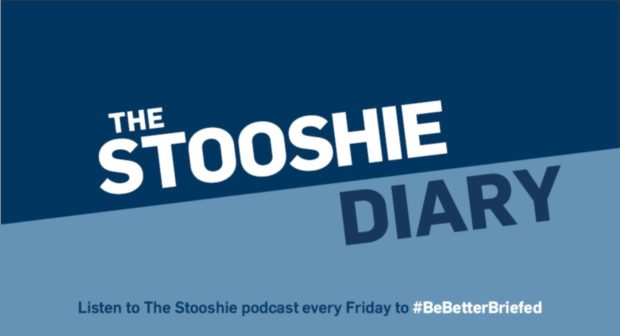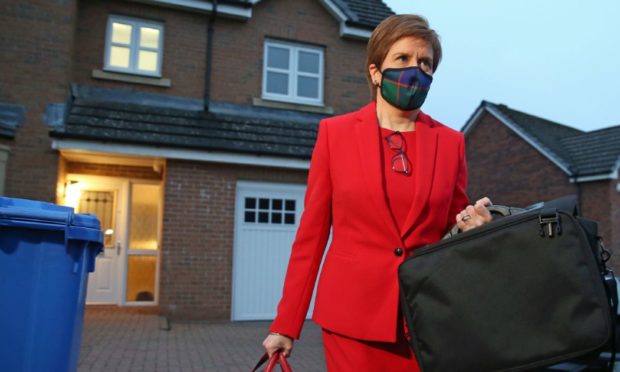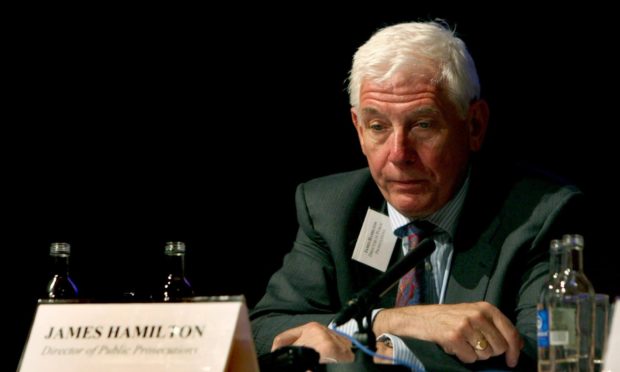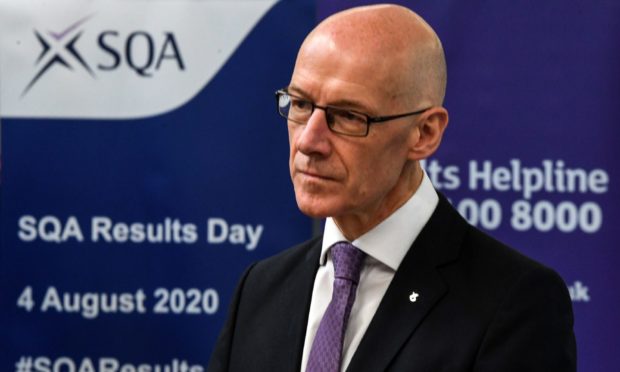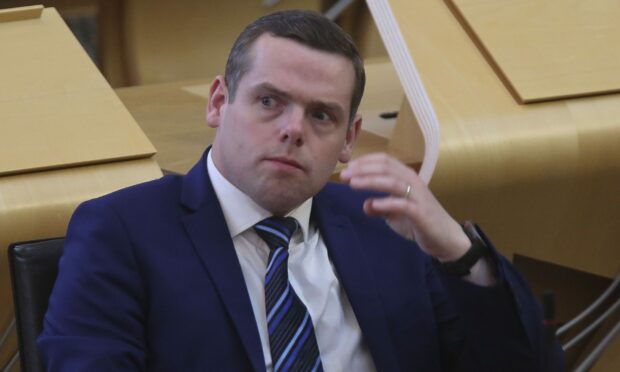Whisper it, but a relative calm seems to have descended on Scottish politics of late.
It is not all been plain sailing, of course, with some pulses racing at the prospect of “eco-zealot Marxists” entering government, not to mention the SNP deciding it no longer wants all of Scotland’s oil.
But, while not every MSPs could be said to have exuded a Zen-like aura as they returned to the Scottish Parliament this week, most appeared in fine fettle and ready to get back down to business.
To an extent, this always happens after a summer break, and especially one which has followed an election.
Summer holidays
The politicians who were re-elected would have been able to relax for the first time in a long while during the recess, safe in the knowledge they had escaped the sack for another five years.
The atmosphere at the moment may also be down to the fact the positions of all the party leaders in Holyrood are fairly secure.
Only Willie Rennie’s job was left in imminent danger by the election result in May, and he has now been succeeded as Scottish Liberal Democrat leader by Alex Cole-Hamilton.
Meanwhile, although nobody could declare that any consensus has harmoniously broken out over the huge constitutional battles that have ripped through our politics in the last decade, the deadlock between Holyrood and Westminster means there is is little prospect of a second independence referendum any time soon.
And Brexit? Well, it got done, for better or worse.
The Covid-19 pandemic, of course, remains at the forefront of everyone’s thoughts and fears, but significant practical disagreements on strategy are now rare.
Some senior SNP ministers have even manged to take a holiday during recent weeks, although none have yet been filmed cutting shapes on any Aberdeen nightclub dancefloors.
This is all a far cry from the fraught and fractious first half of 2021.
It seems like a distant memory now, but it is only a few months since First Minister Nicola Sturgeon came close to losing her job, as investigations into her government’s handling of harassment allegations against Alex Salmond seemed to be hurtling towards a dramatic conclusion.
Uncertain consequences
We have been reminded of those tumultuous days in a new book, “Break-Up: How Alex Salmond and Nicola Sturgeon Went To War”, in which Courier editor David Clegg and Times journalist Kieran Andrews lift the lid on the secret succession talks that were taking place at the top of the SNP, as senior figures anxiously awaited the verdict of James Hamilton QC on the first minister’s future.
While there was widespread speculation at the time that Ms Sturgeon could resign if she was found to have breached the standards expected of ministers, it would still have been an extraordinary moment, with uncertain consequences.
After all, the first minister’s popularity had soared to unprecedented levels as a result of the way she was perceived to be handling the pandemic.
And there was no obvious sign that the general public was overly concerned about whether or not she misled parliament, regarding what she knew about the allegations against Mr Salmond, and when.
There is no doubt that the resignation of the first minister, just weeks before an election, would have caused pandemonium in the polls.
The Scottish Conservatives were clearly pinning their hopes such an outcome, but it is entirely possible that this was a miscalculation, and that Ms Sturgeon’s departure would have actually galvanised SNP support amid a sense that she had been treated unjustly.
It will always be overshadowed now by what has happened since, but Mr Salmond’s decision to resign in the immediate aftermath of the Yes side’s defeat in the 2014 independence referendum was a game-changing moment for Scottish politics.
2014 independence referendum
The move captured the headlines and the momentum away from the victorious No campaign, which was simultaneously making a catastrophic error via David Cameron’s ill-timed demand for English votes for English laws.
Incensed at the referendum result, and what was playing out in the subsequent hours and days, tens of thousands of Yes voters began joining the SNP, cementing the party’s dominance for years to come.
However, while Ms Sturgeon’s resignation might not have caused the SNP vote to collapse at the May election, the party’s problems would not have disappeared.
When Mr Salmond resigned, there was no doubt that it would be Ms Sturgeon who would replace him.
The new book suggests that if the first minister had fallen on her sword in March, then the party would have turned to her deputy, John Swinney.
The Perthshire North MSP might have been the best candidate to lead the SNP through the election, and avoid destabilising the pandemic response, but he had his own issues to contend with, having just narrowly survived two “no confidence” votes.
Nicola Sturgeon’s successor
Before long, thoughts would surely have begun to turn to a the need for longer-term replacement.
The likes of Kate Forbes, Humza Yousaf and Angus Robertson have been touted as possible successors, but would any of them have been ready this summer to emerge as the clear heir to Ms Sturgeon?
If not, what affect would a leadership contest have had on a party that has not had one for a while?
Tory leader Douglas Ross, meanwhile, might have faced a challenge of his own had he failed to take advantage of the chaos at the top of the SNP at the election.
And then there is the question of what impact Ms Sturgeon’s resignation would have had on Mr Salmond’s attempted return to politics via the Alba Party, other than almost certainly intensifying the animosity between pro-independence factions.
We will never know, of course, what would have played out if Mr Hamilton’s verdict on Ms Sturgeon’s conduct had been different in March.
One thing we can say with confidence, however, is that it would not have been followed by a period of peace and tranquillity in Scottish politics.
